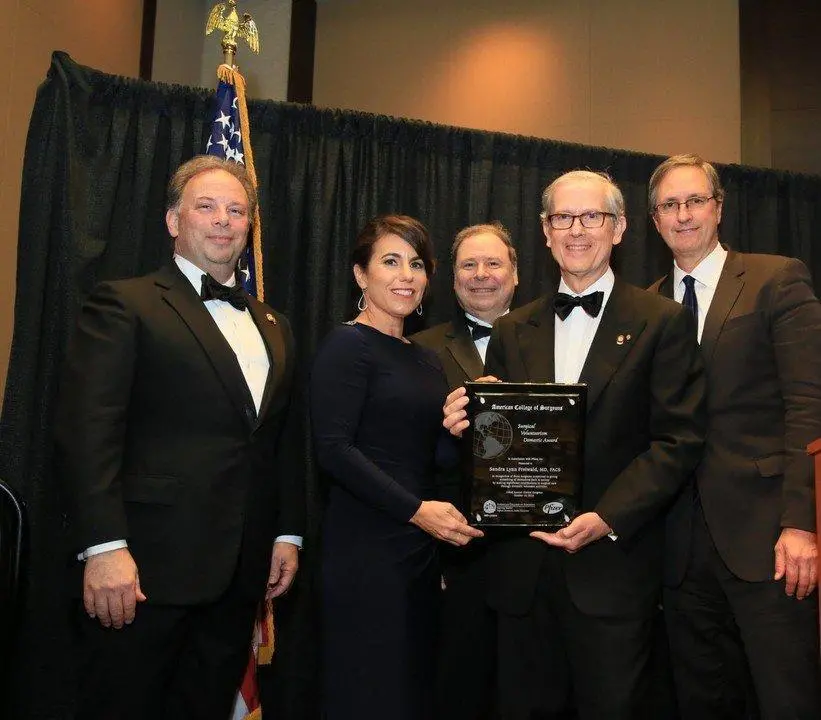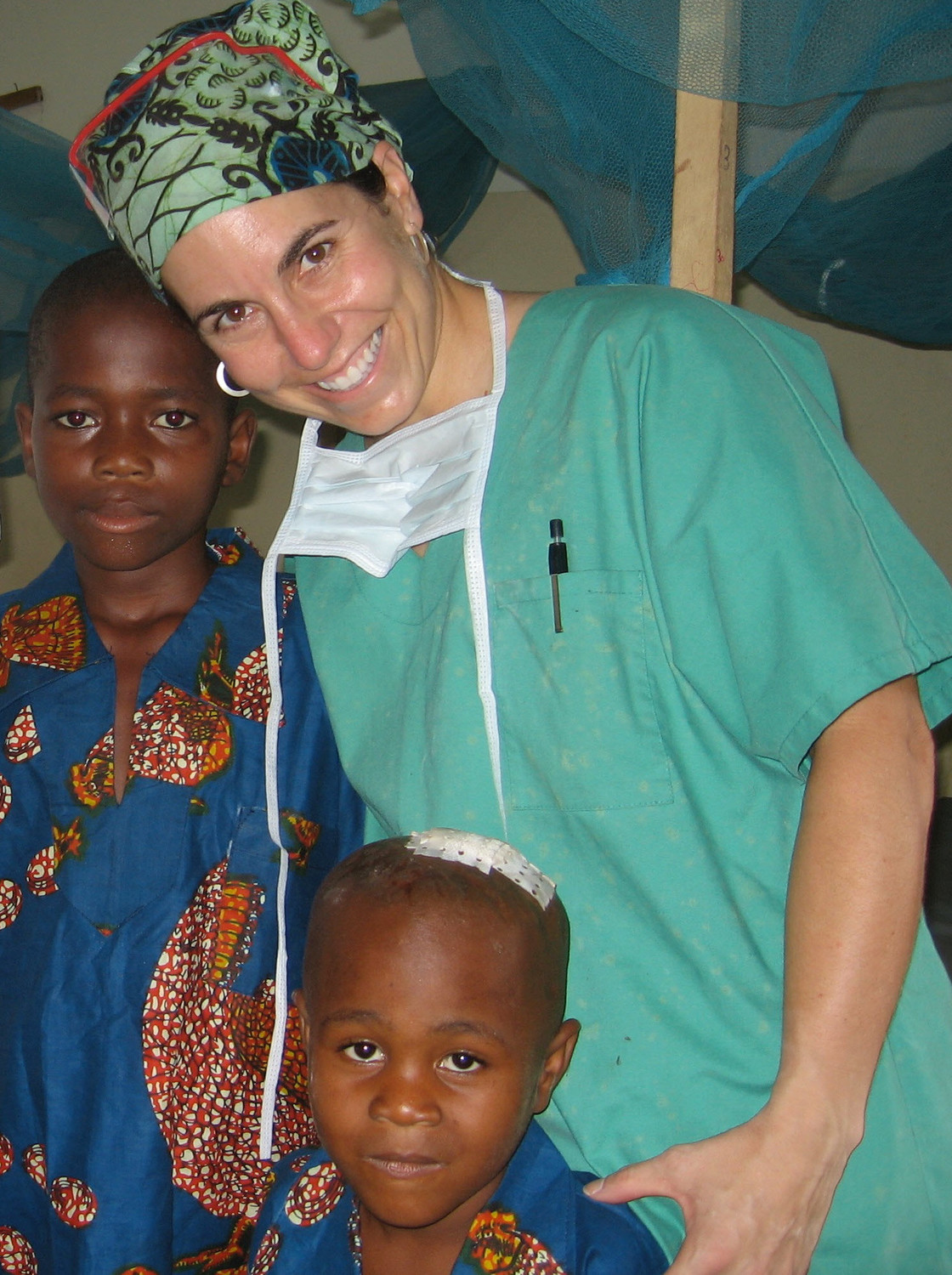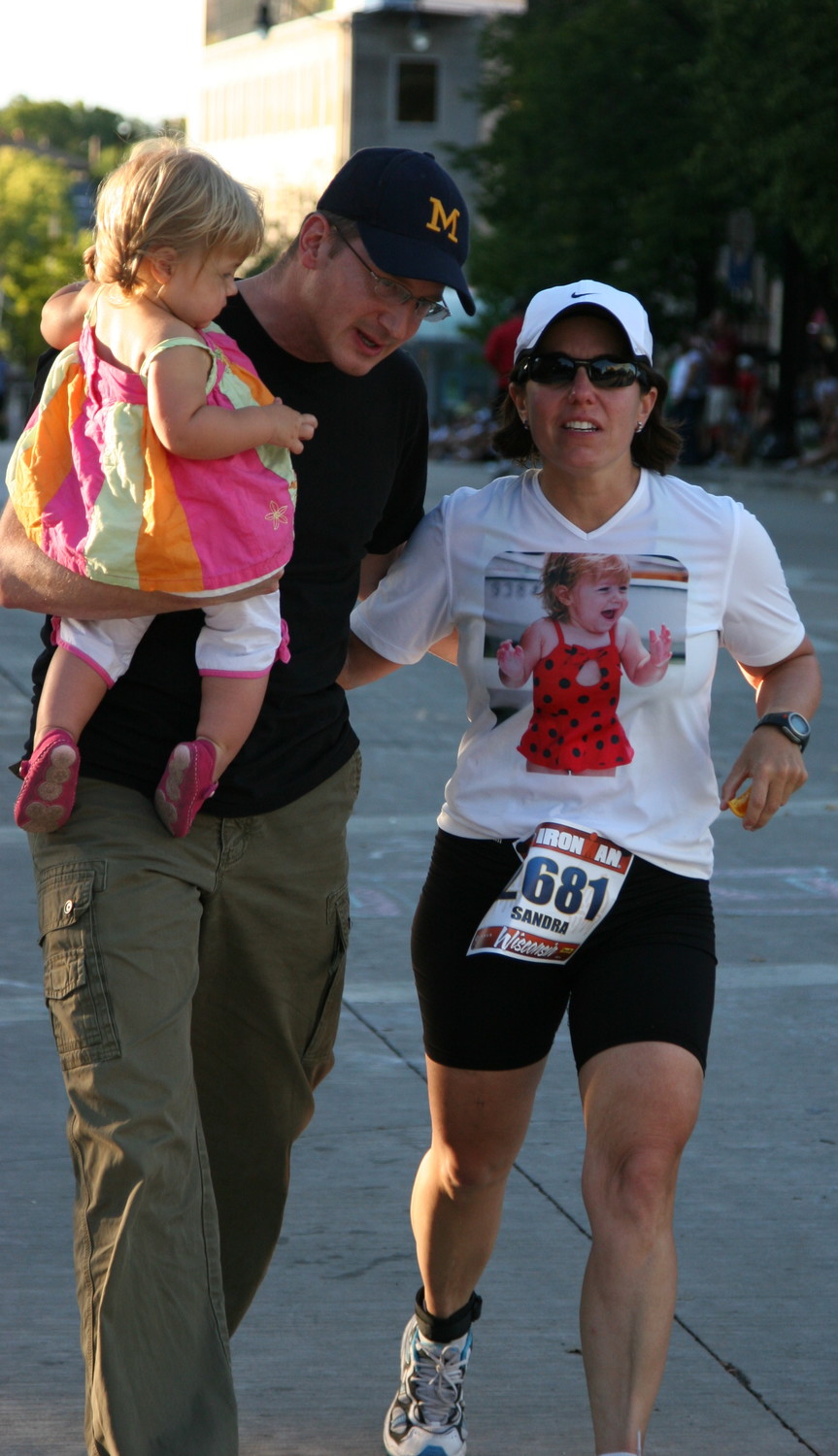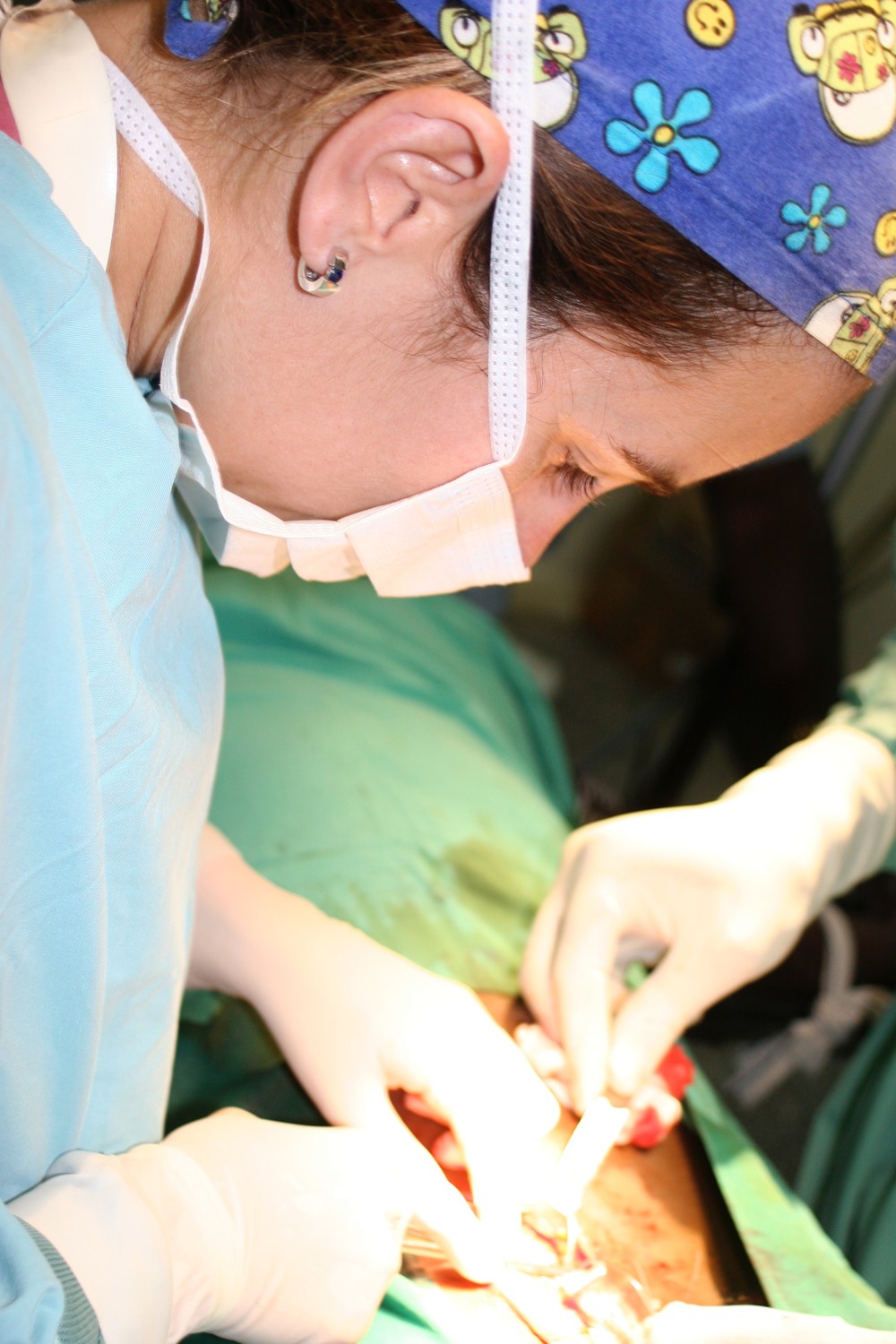Comments (4)
Matt Broussard
Great interview, May God bless you.
Ilan Miguel
Amazing read
Christine Lusha
Inspirational story, thanks !
Rick Powell
Great article

Beating Cancer with Persistence, Courage and Motivation
Dr. Sandra Freiwald is a surgeon, award-winning humanitarian, Ironman triathlete, devoted mom and everyday American hero. Sandra grew up in Detroit, Michigan as an only child to first-responders; her mom was a nurse and her father was a firefighter. She earned her BS/MD degree at the University of Michigan premedical-medical school program in just seven years. Sandra was honored with the prestigious “American College of Surgeons Pfizer Award for Domestic Volunteerism” in 2016 for her tireless efforts organizing and recruiting surgeon volunteers as well as performing surgery for the desperate, poor and uninsured with Project Access. She worked with Médecins Sans Frontières / Doctors Without Borders in Monrovia, Liberia, providing surgical care to anyone who needed it.
I’ve always been drawn to what I perceive as the “hardest thing.” I asked to be on the Trauma/Burn service as a third-year medical student and after residency did a fellowship in Trauma/Critical Care. I liked taking care of the sickest patients.
Dr. Sandra Freiwald, Recipient of the 2016 American College of Surgeons Pfizer Award for Domestic Volunteerism
In January of 2017, Sandra was diagnosed with breast cancer; the doctor became the patient. Here is the inspiring interview of how she handled one of the greatest challenges of her life; coping with cancer.
What advice would you give to anyone diagnosed with cancer?
Breast cancer has been my own greatest challenge—it has changed everything about my life. I have had to struggle with a new appearance, physical limitations due to side effects from surgery and chemotherapy, fatigue, and not working for six months in a job that I love.
The most straightforward advice I would give to anyone diagnosed with cancer is to accept the help people want to give you. If someone asks what you need or what they can do for you, give them a task! Keep moving. I realize this may be more of a challenge for some people than others, so it is not meant to make anyone feel badly if they can’t. During my own treatment, the times I felt my best were when I was exercising. It helped with symptom control and helped me maintain a reasonably positive outlook.
I have had to acknowledge my mortality and consider the possibility of dying before my daughter grows up. Throwing in the possibility of my husband’s cancer recurring into the mix makes it even worse. This is an on-going process. I’m focusing on controlling the things I can control, living more in the moment and taking each day as a gift. I’m reminding myself daily that not looking like other women doesn’t change who I am on the inside. I’m doing a better job of prioritizing what is most important to me and of accepting my imperfections.
I had a spread of microscopic tumor cells to one of my armpit lymph nodes. The chemotherapy, ovary removal and an anti-estrogen drug I take every day are designed to minimize the chance that the cancer will recur elsewhere in my body. My cancer was discovered on a yearly screening mammogram. I do not have a family history of breast cancer, or other risk factors, so it was a big surprise. I am so thankful my mammogram was read by an excellent radiologist who noted a subtle abnormality. This lead to my cancer being diagnosed at an early stage, which improves my prognosis.
What personal strengths and life experiences did you draw upon during this difficult time?
I already knew I could deal with difficult situations, so I knew I could handle this too. My supportive husband and daughter gave me unconditional love and support. Their ease in accepting the appearance of my new body and baldness from chemotherapy helped me to more readily accept these changes.
Endurance athletics helped me put the long slog of chemotherapy in perspective. Like a marathon or long triathlon, I knew if I thought about the whole 12 weeks, I would get discouraged and start feeling like I couldn’t get through it all. Racing had already taught me to break things down into manageable segments and I was able to look at chemo through that lens. I also knew from racing that just because I felt awful at one moment, I wouldn’t necessarily feel awful in 10 minutes. Same with chemo—just because one day was rotten, it did not mean the next day would be as well.
What top three personal traits that your credit to helping you with your success and why?
Persistence: I’m unlikely to give up. If it means walking part of a race, pushing myself to exercise the day of a chemo infusion, or facing difficult clinical situations, I never quit.
Courage: Being brave enough to face the possibility of failure has allowed me to push myself toward goals I’m not always confident I can reach.
Internal motivation: Whether it is getting through an arduous surgery residency/fellowship, completing a race or going through chemotherapy, sustaining the drive to finish comes from within, not external sources.

You do volunteer surgeries around the world for those who can't afford it. How did you get involved?
Working for Médecins Sans Frontières/Doctors Without Borders was life-changing for me. I realized I wanted to continue working in the humanitarian space. After that, I was offered a position at Kaiser Permanente San Diego as the surgical lead for Project Access San Diego, a project in which Kaiser partners with Champions for Health (formerly the San Diego County Medical Society Foundation) to provide access to specialty care to uninsured San Diego County residents. This has been on-going since 2008, and since then we have provided more than 14 “Saturday Surgery Days” in which uninsured patients can get outpatient operations and other procedures done by volunteers. The care we provide can be life-changing, and for some patients, has been life-saving. It is extremely rewarding.
What motivates you? How do you sustain motivation?
Exercise has been a part of my daily routine for many years. It makes me feel good, relieves stress and gets me outdoors. The mood elevation and stress reduction is a positive motivator that keeps me going back for more.
Now that I’ve been treated for breast cancer, I know that studies have demonstrated improved survival for patients who routinely exercise and maintain a healthy weight. These studies have shown substantially improved survival, and that motivates me even more.

What made you decide to become a triathlete?
This was another case of wanting to do what I perceived as the “hardest thing.” When I was a surgery resident, a friend of mine was a triathlete. I didn’t have time for endurance sports until I finished my trauma fellowship and began my current position with Kaiser Permanente. I started cycling with colleagues, and did a few century races. After that, I started running and swimming. I progressed from international distance, to half-iron and finally completed Ironman Wisconsin in 2010, when I was 41.
From an athletic standpoint, completing Ironman Wisconsin made me very proud. I remember being in awe of people who had completed that distance and finding it hard to believe I could be one of them. I learned that with a good training program, proper nutrition and enough persistence, courage and internal motivation, I could accomplish anything I set my mind to doing.
Once I finished Ironman Wisconsin, I realized I didn’t want to spend so much training time away from my one and a half-year old daughter, so I focused on running. I ran the NYC Marathon in 2015 on the Doctors Without Borders team, and the Revel Big Cottonwood marathon in 2016. I was trying to qualify for Boston at that race. My plan was going well until mile 18 when I started feeling poorly. It turns out I had developed rhabdomyolysis, and I needed to be admitted to the hospital for hydration to keep my kidneys healthy.
Since I was diagnosed with breast cancer I’ve had a bilateral mastectomy without reconstruction as well as lymph node removal from the armpit of my dominant arm. I’ve also had my ovaries removed and completed 4 cycles of chemotherapy. Throughout my treatment, I’ve focused on exercising every day. Some days I could run, some I just walked. I swam, biked and surfed when I felt well enough. I also worked with a personal trainer to help me with strength training. I added that to maintain muscle mass during chemo—I should have done it a long time ago. I’m convinced that moving every day helped me get through my treatment without too many side effects, and helped me maintain a positive outlook, manage my weight and not feel too depressed about the changes to my body and my fitness.
I’m doing at least an hour of cardio daily and adding 30 minutes to an hour of strength training at least 3-4 days a week. This will be more challenging when I return to work in July. I’m also surfing and paddle boarding a few times a week.
I do best with long term goals and a training schedule, so to motivate myself, I’ve registered for a sprint triathlon in July, and a couple half-marathons. I’m planning to run the Tokyo Marathon in Feb 2018, which will occur almost a year to the day that I had my first chemotherapy infusion.

What is your personal philosophy?
Be the change you want to see in the world.
Health care is a human right. Each of us wants to live as long and as well as we can, and we want the same for our loved ones. We are all going to eventually get sick and need medical care. We all have personal responsibility to try to take the best care of our bodies that we can. But I do not think the ability to pay ought to dictate our access to healthcare.
For me, the highest good is being able to realize my talents and potential, and live a life with purpose and meaning. In doing so, I am frequently able to help restore others to health, or inspire them in a way that allows them to realize their own talents and potential.
Great interview, May God bless you.
Amazing read
Inspirational story, thanks !
Great article
Leave your comments
Post comment as a guest